Monoskop
Welcome to Monoskop, a wiki for arts and studies.
Monoskop Log
You are welcome to follow and join us on mastodon at post.lurk.org/@monoskop.
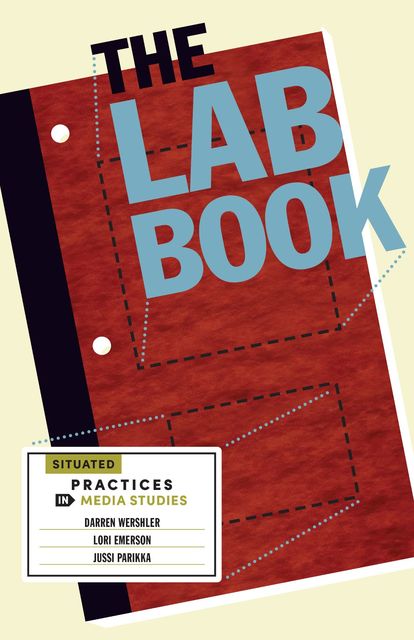
“From the “Big Science” of Bell Laboratories to the esoteric world of séance chambers to university media labs to neighborhood makerspaces, places we call “labs” are everywhere—but how exactly do we account for the wide variety of ways that they produce knowledge? More than imitations of science and engineering labs, many contemporary labs are hybrid forms that require a new methodological and theoretical toolkit to describe. The Lab Book investigates these vital, creative spaces, presenting readers with the concept of the “hybrid lab” and offering an extended—and rare—critical investigation of how labs have proliferated throughout culture.
Organized by interpretive categories such as space, infrastructure, and imaginaries, The Lab Book uses both historical and contemporary examples to show how laboratories have become fundamentally connected to changes in the contemporary university. Its wide reach includes institutions like the MIT Media Lab, the Tuskegee Institute’s Jesup Wagon, ACTLab, and the Media Archaeological Fundus. The authors cover topics such as the evolution and delineation of lab-based communities, how labs’ tools and technologies contribute to defining their space, and a glossary of key hybrid lab techniques.”
Publisher University of Minnesota Press, March 2022
ISBN 9781517902179, 1517902177
x+333 pagesProject website
Publisher
WorldCatHTML (Manifold)
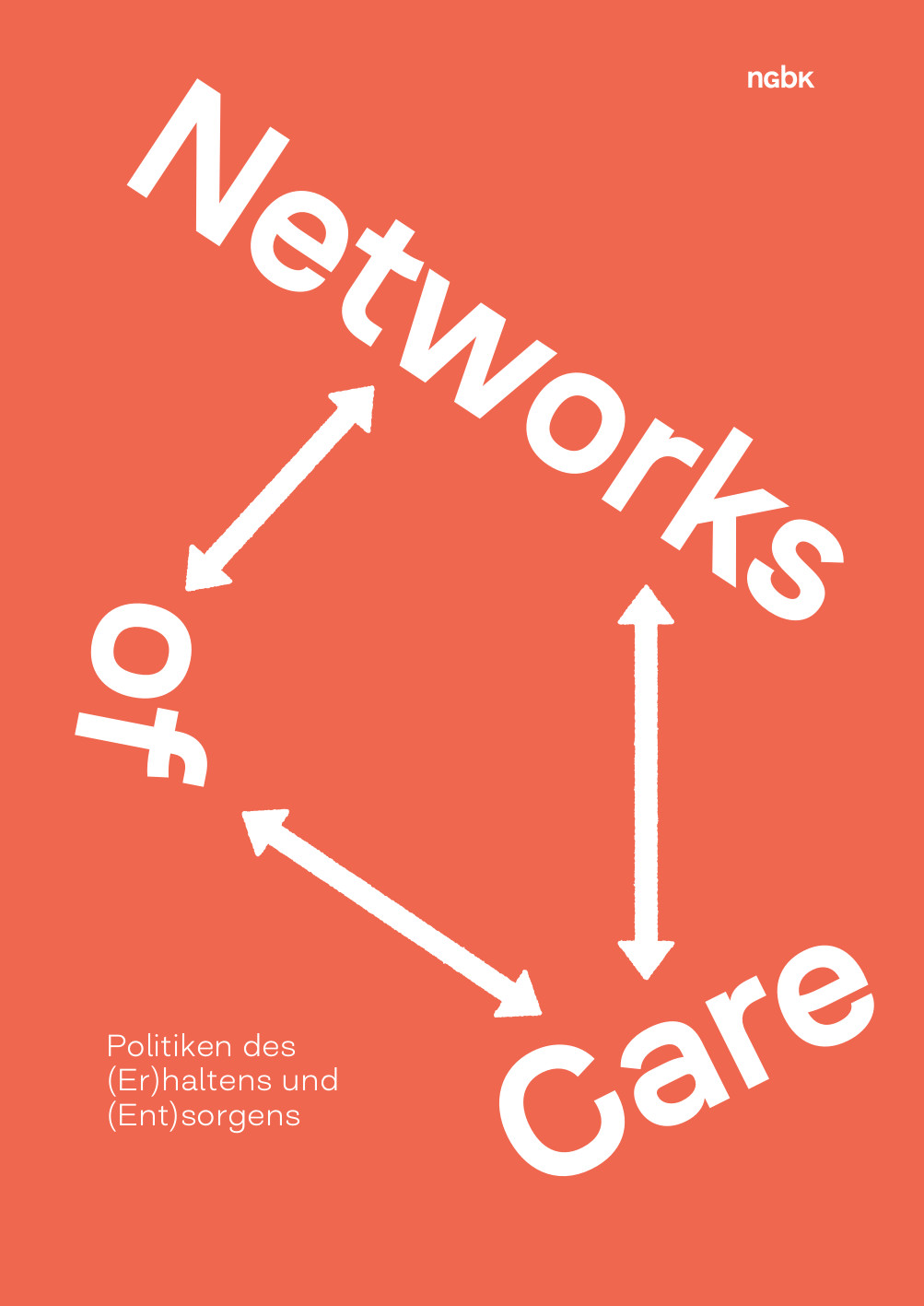
“In 2021, Networks of Care offered a platform at the nGbK enabling an exchange of ideas and information between practitioners and experts concerning strategies for dealing with artistic estates, private and public archives, or idle documentation volumes. The present contributions reflect—in their theoretical analyses and also partly fleeting or historical thoughts, notes, and reflections and through their polyphony and contradictoriness—the fact that practices of preserving and discarding are always also political and must be understood principally as unfinished processes of continuous selecting, deciding, translating, transferring, actualizing, and transforming. The publication concludes with a preliminary interim result and a proposal for next steps regarding these structural and cultural-political challenges.”
With contributions by Dušan Barok, Nanne Buurman, Amalia Calderòn, Mela Dávila Freire, Annet Dekker, Lukas Fuchsgruber, Michael Hiltbrunner, Megan Hoetger, Bettina Knaup, Christin Lahr, Anne Luther, Katalin Krasznahorkei, Laurence Rassel, Peter Rehberg, Elske Rosenfeld, Friederike Schäfer, Anna Schäffler, Olga Schubert, Cornelia Sollfrank, Ingrid Wagner, and Mark Waugh.
Publisher neue Gesellschaft für bildende Kunst (nGbK), Berlin, May 2022
ISBN 9783938515952
178 pages
Trading Zones: Camera Work in Artistic and Ethnographic Research (2022)
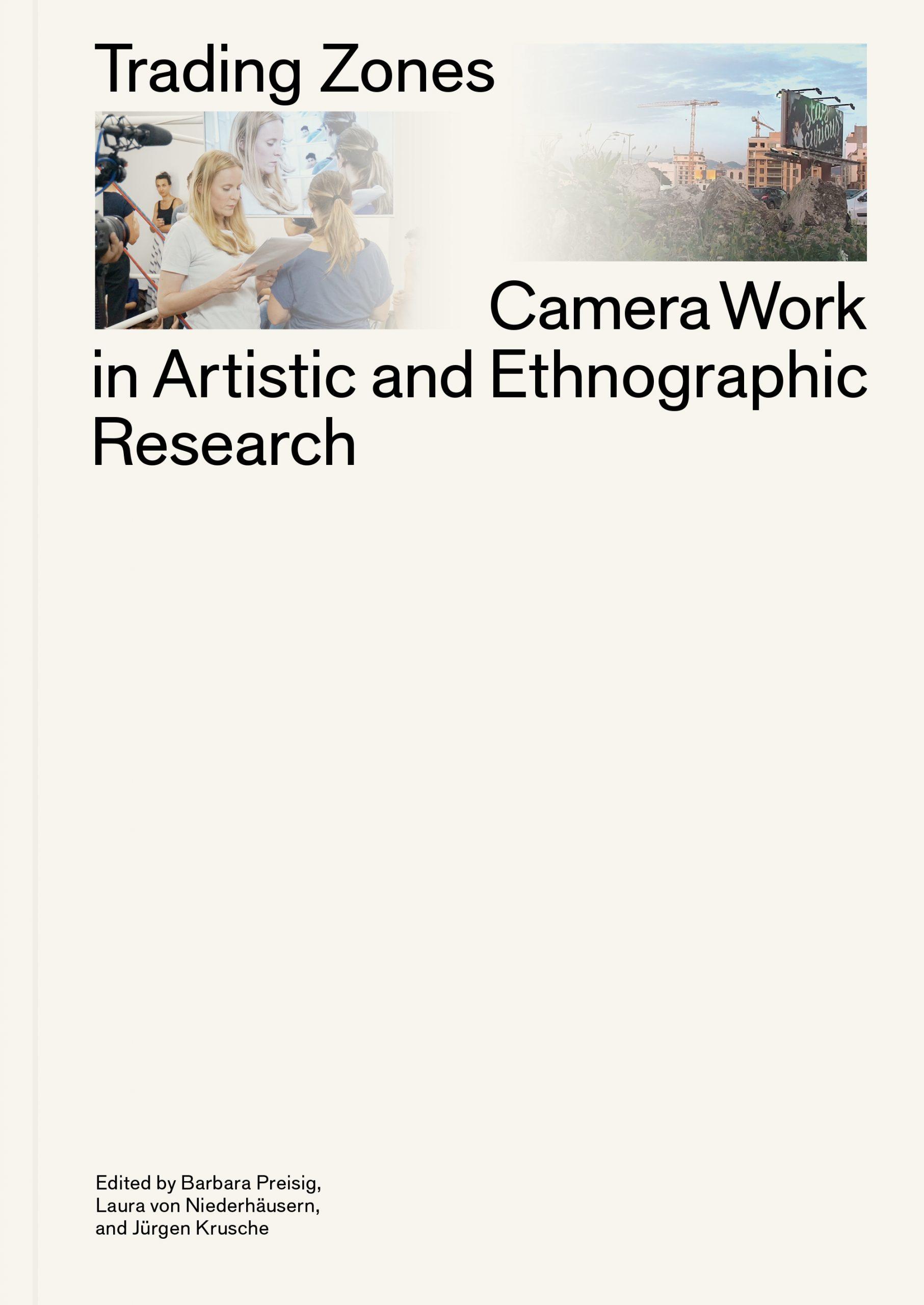
“This book introduces camera-based practices at the intersections of artistic and ethnographic research that critically examine the means of their own production and social embeddedness. In shared practices such as recording in the field, editing in post-production and modes of presentation, the camera is involved as an agent rather than an innocent device. How does the camera grapple with the invisible and how does it reveal what the camerawoman is unable to see? How do films, videos and photographs provide access to vulnerable knowledges and what presentation formats can extend the linearity of narration?
Taking account of their own situatedness and the limits of representation, many of this book’s contributors attempt to speak with — rather than about — the other. These negotiations appearing in the featured projects open up a shared field of artistic and ethnographic inquiry, whose potential — for experiments and reflections — is far from exhausted.”
Contributions by Sepideh Abtahi, Shirin Barghnavard, Laura Coppens, Louis Henderson, Heidrun Holzfeind, Mina Keshavarz, Daniel Kötter, Jürgen Krusche, Bärbel Küster, Bina Elisabeth Mohn, Laura von Niederhäusern, Uriel Orlow, Barbara Preisig, Rani al Raji, Nahid Rezaei, Anette Rose, Sahar Salahshoori, Christoph Schenker, Amira Solh, Lena Maria Thüring, Zheng Mahler.
Edited by Barbara Preisig, Laura von Niederhäusern, and Jürgen Krusche
Publisher Archive Books, Berlin
Creative Commons BY-NC-ND 4.0 license
ISBN 9783948212827
164 pages
Dora García (ed.): If I Could Wish for Something (2021)
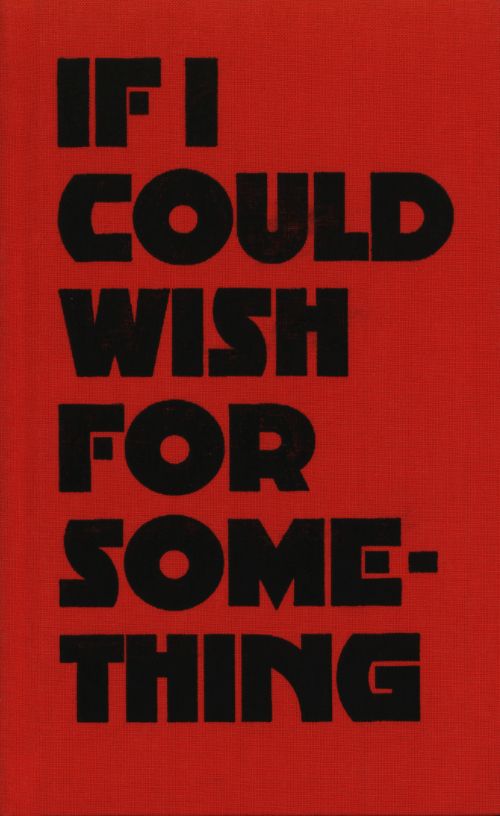
“In 1930, German film composer Friedrich Hollaender wrote “Wenn ich mir was wünschen dürfte”, famously performed by Marlene Dietrich. It inspired the foundation of Dora García’s exhibition ‘If I Could Wish for Something’ and this accompanying publication. The song serves as a powerful expression of a complex concept: sadness as political strength. García in turn connects this concept with women’s struggles for emancipation. Disappointed in the promise made to them by revolutionary movements, which for now remains unfulfilled, women are seeking to transform this feeling to overcome the temptation of victimhood and open up the possibility of an ethical encounter. ”
With texts by Antonio Cataldo, Saddie Choua, Paloma Contreras Lomas, Dora García, Agnieszka Gratza, Carla Lamoyi, Hilde Methi, Andrea Valdés, Sayak Valencia, and Pieternel Vermoortel.
Publisher Fotogalleriet, Oslo, and Netwerk Aalst, Aalst, 2021
ISBN 9789081080064, 9081080067
222 pages
via KHiO
Adriana N. Helbig: Hip-Hop Ukraine: Music, Race, and African Migration (2014)
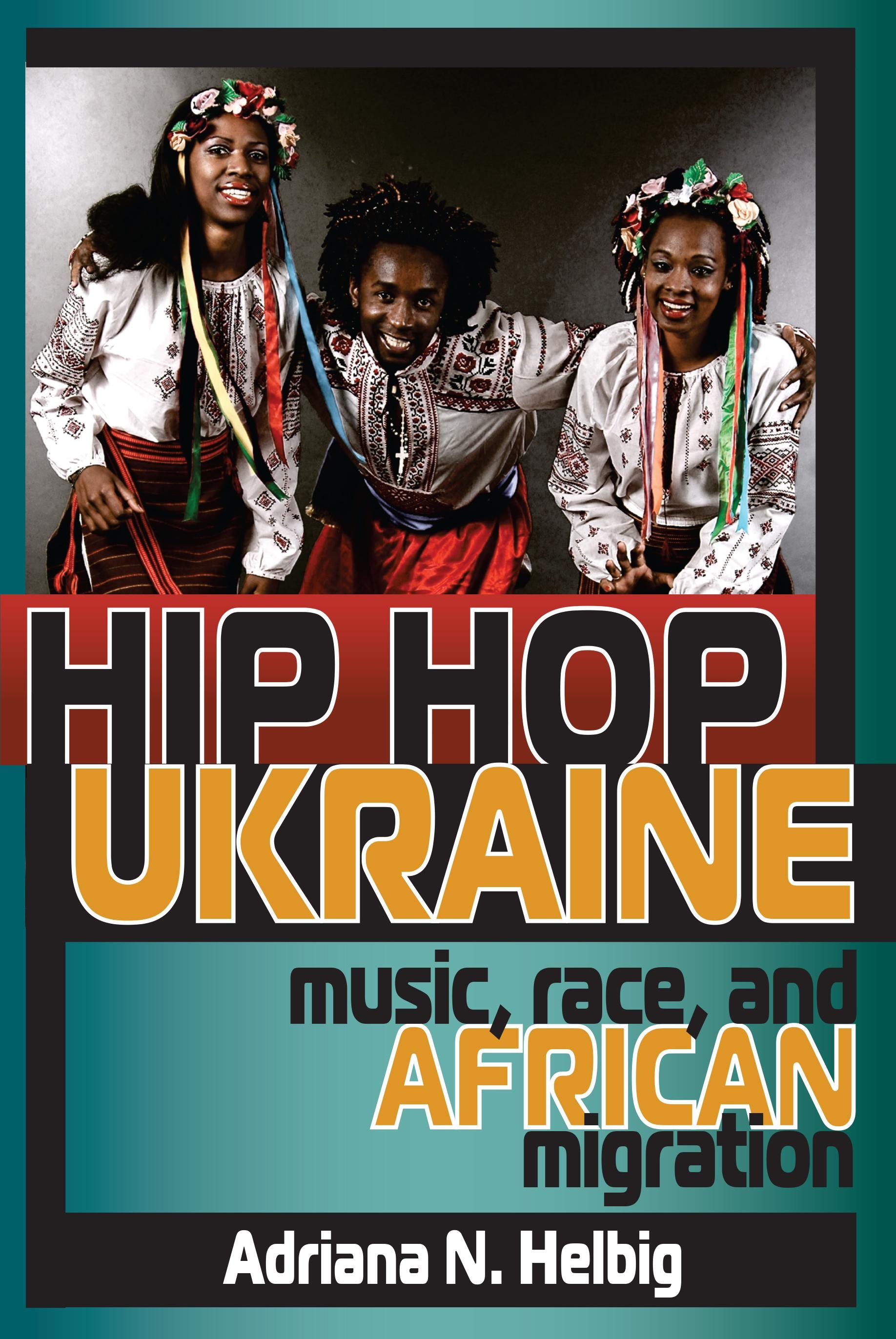
“In Hip Hop Ukraine, we enter a world of urban music and dance competitions, hip hop parties, and recording studio culture to explore unique sites of interracial encounters among African students, African immigrants, and local populations in eastern Ukraine. Adriana N. Helbig combines ethnographic research with music, media, and policy analysis to examine how localized forms of hip hop create social and political spaces where an interracial youth culture can speak to issues of human rights and racial equality. She maps the complex trajectories of musical influence—African, Soviet, American—to show how hip hop has become a site of social protest in post-socialist society and a vehicle for social change.”
Publisher Indiana University Press, Bloomington, IN, 2014
ISBN 9780253012043, 025301204X
xix+233 pagesInterview with author: Amanda Jeanne Swain (New Books Network, 2014, podcast).
Reviews: Kevin C. Holt (Current Musicology, 2014), Michael C. Thornton (Slavonic and East European Review, 2015), Mark Alan Rhodes II (Social & Cultural Geography, 2015), Anna Oldfield (Popular Music and Society, 2015), Tony Mitchell (Slavic Review, 2016), Kendra Salois (Ethnomusicology, 2017).
MARCH, journal of art and strategy (2020–)
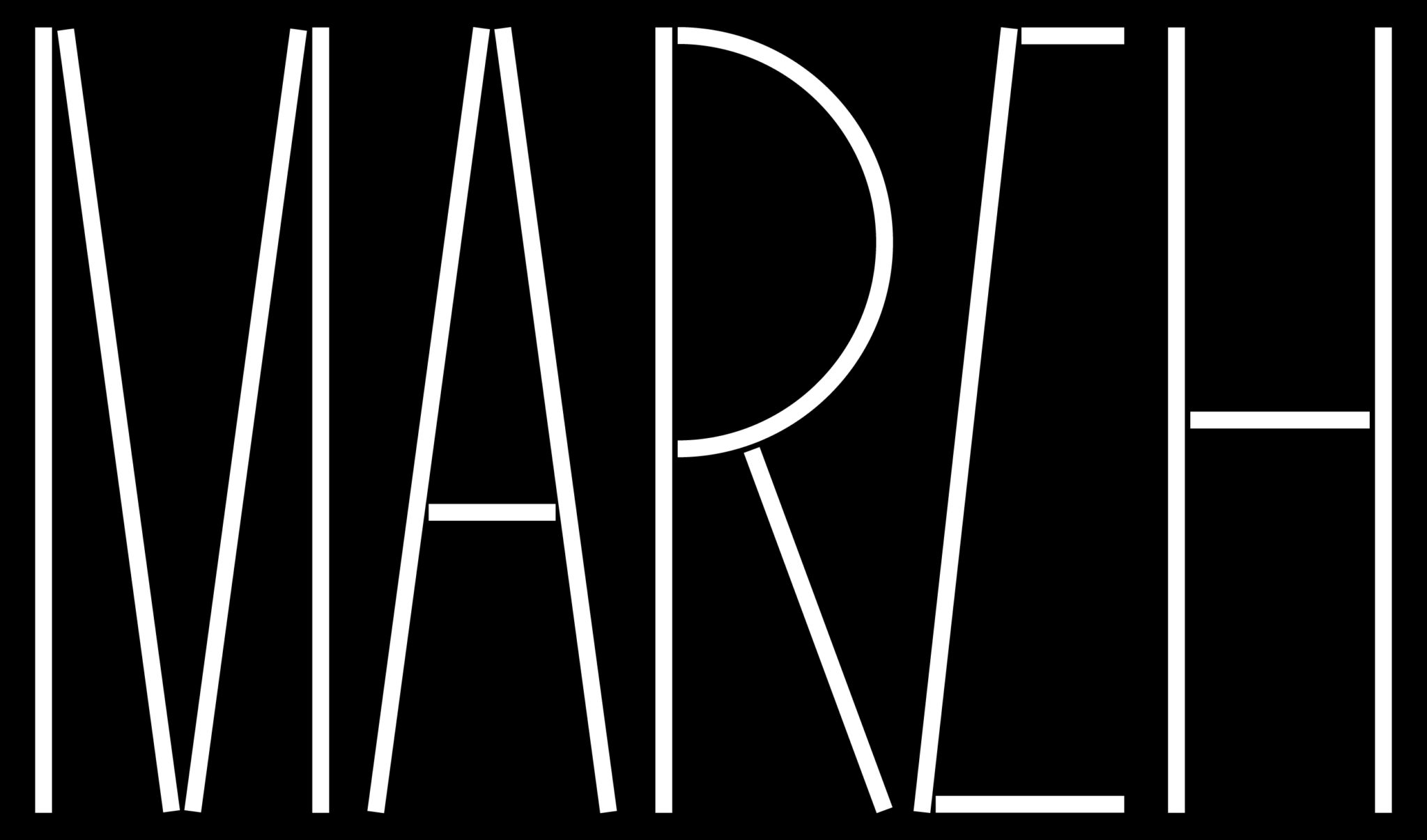
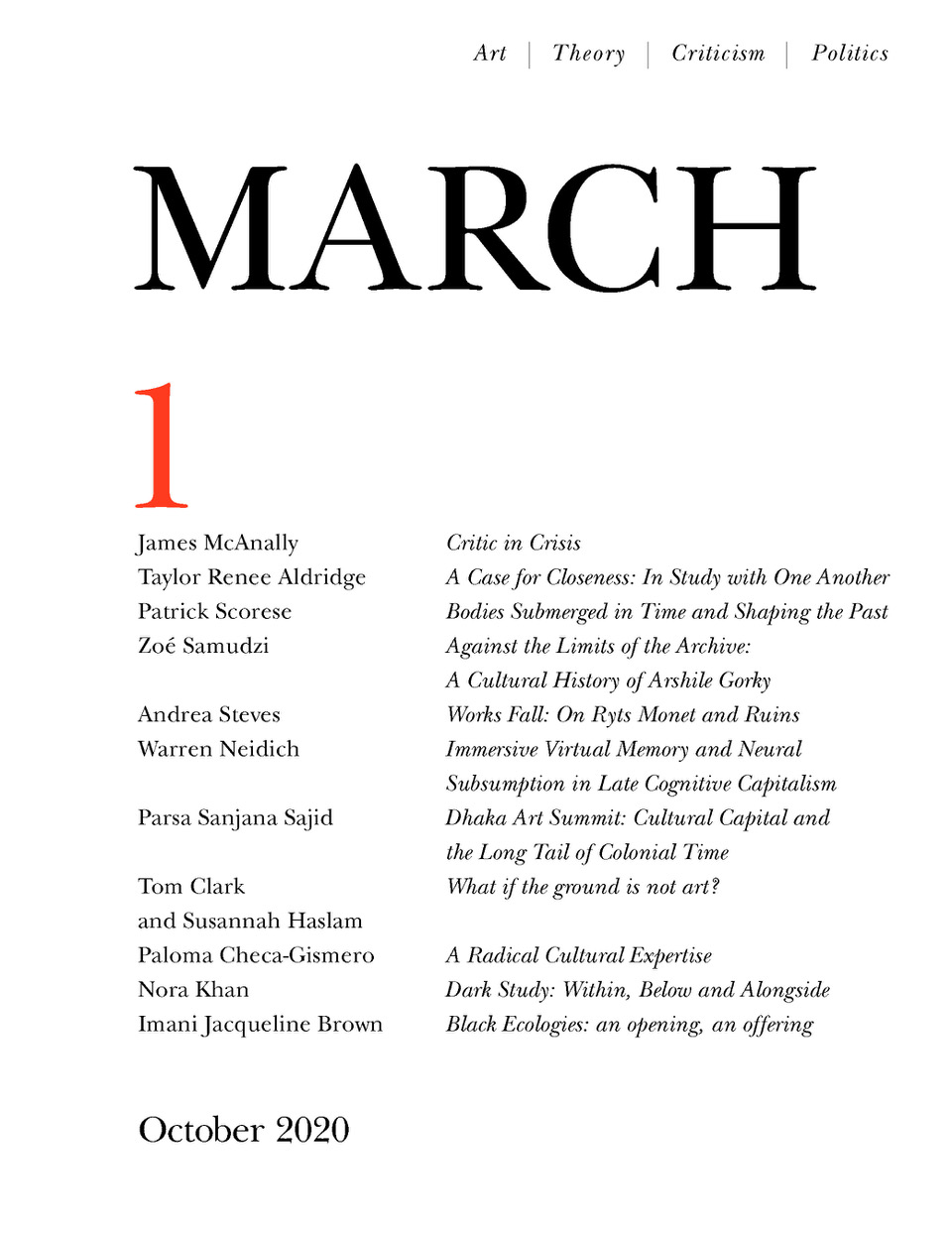
“MARCH embraces publishing as an act of protest to address the critical social and political issues of our time. MARCH emerges at a moment of deepening institutional crisis and is intent on advancing new forms of publication, critique, and public action. We are a partisan publication: we initiate, articulate, advance, and defend prefigurative ideas about what art is, could and should be. We believe in the latent potential critique carries to transform our art worlds, our institutions, our means of expression and experimentation, and ourselves. We are con-temporary, with and in our time—an archive of the present and proposition towards the future—where our ideas, actions and form embodies this insurrection.
MARCH features an annual print edition alongside an active online platform commissioning essays, interviews, and experimental critical writing with a global perspective. ”
Edited by Sarrita Hunn, James McAnally, et al.
Interview with editors: Mela Dávila Freire (A*Desk, 2021, EN/ES/CA).
Issues, features:
Dispatches (2020)
Issue 1 (2020-2021)
Issue 2: Black Ecologies (ed. Imani Jacqueline Brown, 2021-2022)
Publishing as Protocol (eds. with Constant and Vessel, 2021-2023)
Conversations on Sound and Power (ed. Sonic Insurgency Research Group, 2021-2022)
Multidirectional Memory (2022-)
Les Back: Academic Diary, or Why Higher Education Still Matters (2016)
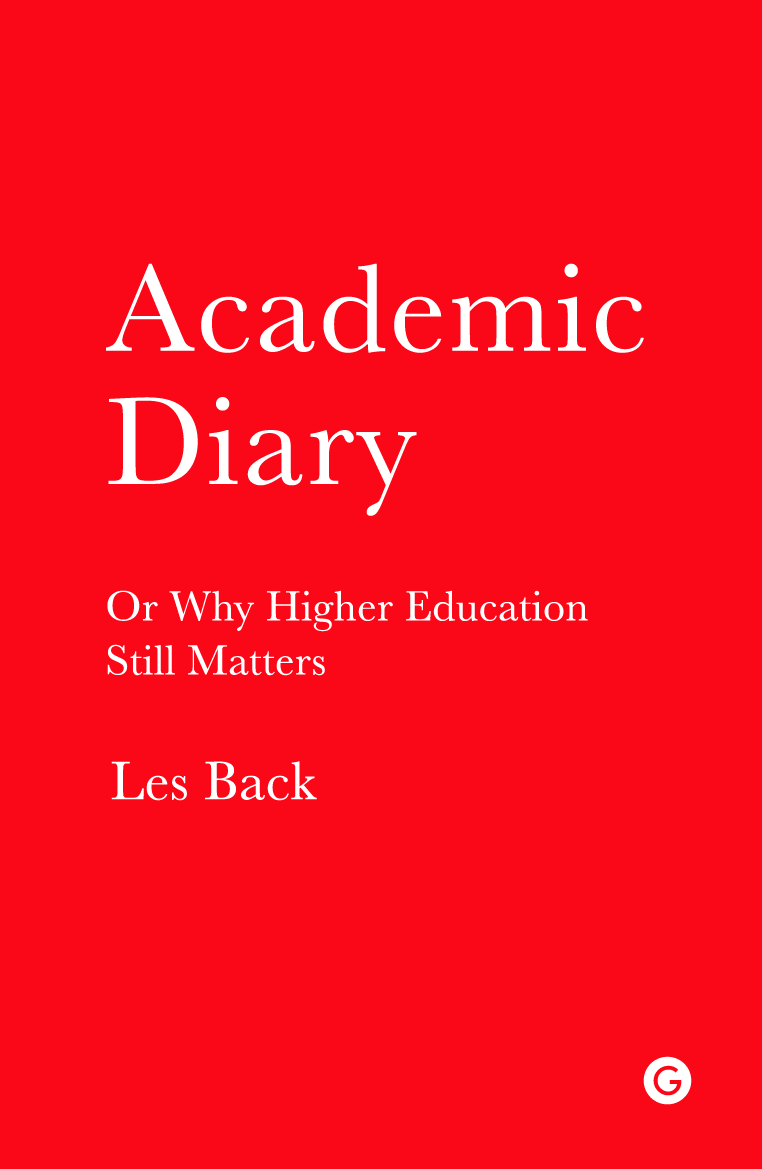
“Les Back has chronicled three decades of his academic career, turning his sharp and often satirical eye to the everyday aspects of life on campus and the larger forces that are reshaping it. Presented as a collection of entries from a single academic year, the diary moves from the local to the global, from PowerPoint to the halls of power. With entries like Ivory Towers and The Library Angel, these smart, humorous and sometimes absurd campus tales not only demystify the opaque rituals of scholarship, they offer a personal route into the far-reaching issues of university life. From the impact of commercialisation and fee increases to measurement and auditing research, the diary offers a critical diagnosis of higher education today. At the same time, it is a passionate argument for the life of the mind, the importance of collaborative thinking and why scholarship and writing are still vital for making sense of our troubled and divided world.”
Publisher Goldsmiths Press, London, 2016
Open access
ISBN 9781906897581, 1906897581
xiii+258 pagesReviews: Rose Deller (LSE Review of Books, 2016), Andrew Robinson (Times Higher Education, 2016), Rosalind Gill (Int’l J Politics, Culture, and Society, 2018), Bridget Hanna.
Book website (archived)
Publisher
WorldCat












































